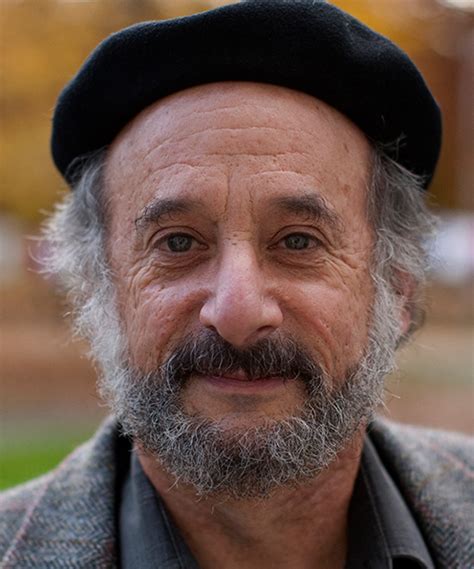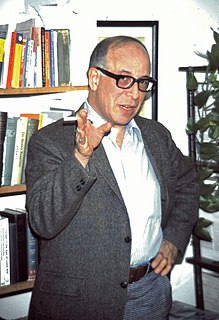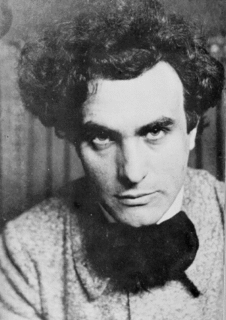A Quote by Harold Rosenberg
The aim of every authentic artist is not to conform to the history of art, but to release himself from it in order to replace it with his own history.
Related Quotes
Contemporary art is based on that an artist is supposed to go into art history in the same way as an art historian. When the artist produces something he or she relates to it with the eye of an art historian/critic. I have the feeling that when I am working it is more like working with soap opera or glamour. It is emotional and not art criticism or history of art.
The settler makes history and is conscious of making it. And because he constantly refers to the history of his mother country, he clearly indicates that he himself is the extension of that mother country. Thus the history which he writes is not the history of the country which he plunders but the history of his own nation in regard to all that she skims off, all that she violates and starves.
Imagine it's 1981. You're an artist, in love with art, smitten with art history. You're also a woman, with almost no mentors to look to; art history just isn't that into you. Any woman approaching art history in the early eighties was attempting to enter an almost foreign country, a restricted and exclusionary domain that spoke a private language.
The trouble with science fiction is that you can write about everything: time, space, all the future, all the past, all of the universe, any kind of creature imaginable. That's too big. It provides no focus for the artist. An artist needs, in order to function, some narrowing of focus. Usually, in the history of art, the narrower the focus in which the artist is forced to work, the greater the art.
I love art, and I love history, but it is living art and living history that I love. It is in the interest of living art and living history that I oppose so-called restoration. What history can there be in a building bedaubed with ornament, which cannot at the best be anything but a hopeless and lifeless imitation of the hope and vigor of the earlier world?
The merit of Marx is that he suddenly produces a qualitative change in the history of social thought. He interprets history, understands its dynamic, predicts the future, but in addition to predicting it (which would satisfy his scientific obligation), he expresses a revolutionary concept: the world must not only be interpreted, it must be transformed. Man ceases to be the slave and tool of his environment and converts himself into the architect of his own destiny.






































